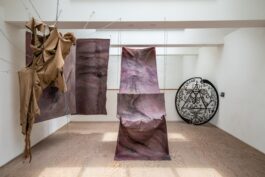
TITLE
I’M NOT HERE TO BE STRONGER THAN YOU
ARTISTS
Alyona Tokovenko & AntiGonna
PLACE
Mimosa House, London, UK
DATES
3.05. — 1.06. 2023
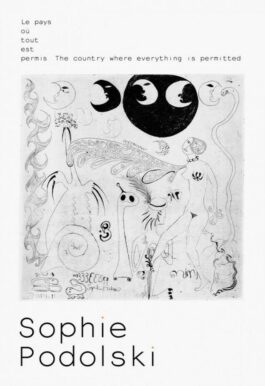
This joint exhibition of Ukrainian artists AntiGonna and Alyona Tokovenko is a public, yet personal conversation on pain, radical intimacy, premonition, fear, traumatic memory, and mutual care. The artists are longtime friends; moreover, when fleeing the potential threat of directly experiencing the horrors of the Russian invasion, they supported each other in navigating an avalanche of sorrow and found their shelter in Paris. Then, in a significant instance, the radical and rebellious talent of Sophie Podolski (1953-1974), a Belgian poet and artist of Ukrainian origin, became an important reference point for this show‘s artistic collective. The bittersweet precision of Podolski`s texts, as well as her life story, brought up numerous reflections and connections to the current state of each one of us. The title was borrowed from Podolski’s magnum opus Le pays ou tout est permis, which opens up both the political and personal dimensions of the conversation that occurs in the exhibition space.
The glorification of strength and heroism could overshadow individual fragility. In the face of unimaginable violence, one can easily forget that personal dramas are not put on hold but rather are added to the social horrors experienced. Amidst the ongoing cycle of events, when images of violence are disseminated on algorithm-based platforms — is there a place for an artist whose work is filled with pornographic imagery, transgression and mysticism? In their works, the artists invite others to their mythical chamber, where transgression becomes the last resort for personal relief. It’s a place where everything is dissolving, everything is permitted, where patriarchal frames of reference crack, and where it is still possible to imagine an escape from the binary world. How can such a conversation happen to avoid establishing hierarchies?
The show’s artistic team has been attempting to break the aforementioned boundaries for a long time - oscillating between questionably differentiated roles of performer, accomplice, artist, model, friend, loved one, curator, and collaborator.
Tokovenko and AntiGonna speak using very different mediums — the former through painting and the latter through the moving image — yet their dialogue has been built around common themes for decades of their friendship. Speaking of pain and trauma with masochistic and ritual vocabulary, they strive to escape the oppression of conservative discourse. Their artistic practices have been rooted in such a conversation for more than a decade, and since 2022 their shared language has further sharpened to talk about violence and vulnerability while sharing pain and sharing love.
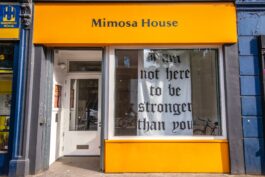
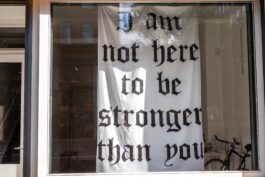
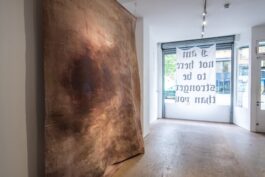
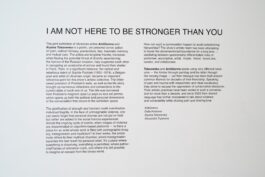
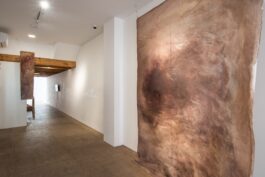
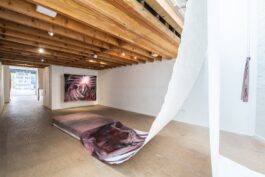
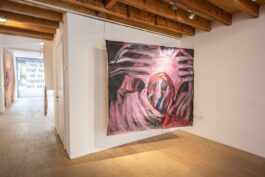
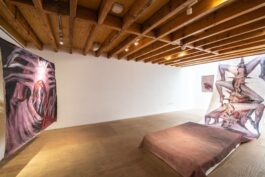
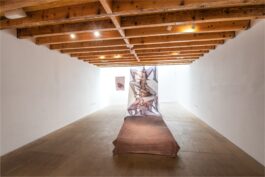
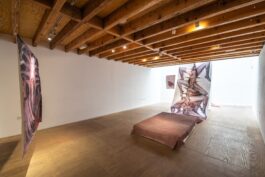
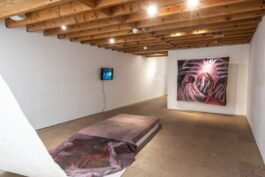
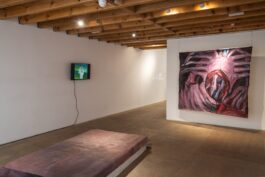

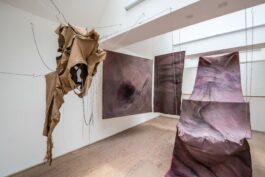
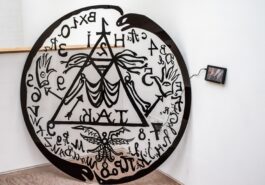
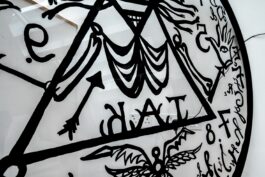
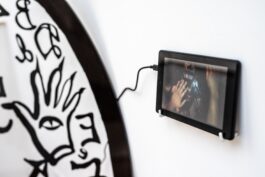
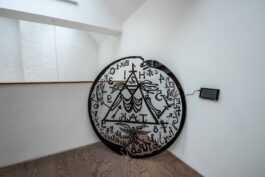
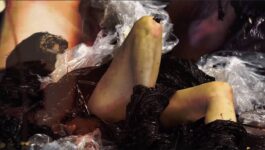
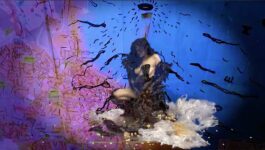
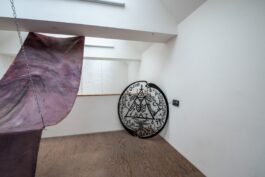
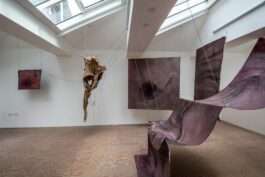
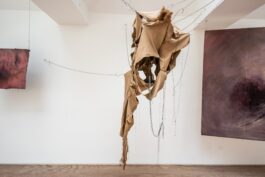
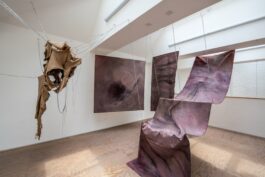
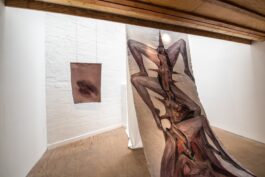
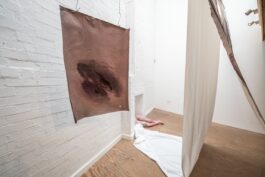
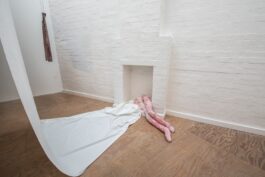
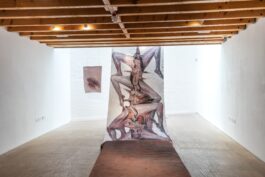
Supporters
UCL SSEES FRINGE Centre for the Study of Social and Cultural Complexity
Public program events:
26th May 2023
Pain and its Politics: a talk by Rachel Warriner moderated by Daša Anosova
Image: Nancy Spero, Helicopter Blinding Victims, 1968. Gouache and ink on paper, 59.7 x 90, 4cm. A detail used on the cover of 'Pain and Politics in Postwar Feminist Art: Activism in the Work of Nancy Spero' by Rachel Warriner
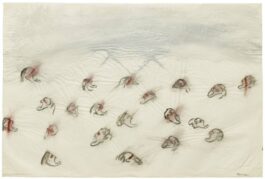
Please join the conversation with Dr Rachel Warriner on pain as a feminist method. Rachel will discuss the politics of representing suffering in feminist practice, focusing on artists whose work examines different kinds of hurt and injury. This conversation will explore questions of bodily empathy, the politics of emotions, and how a visual language of pain might act for feminism.
Speaker
Dr Rachel Warriner is a British Academy Postdoctoral Fellow at The Courtauld, where she has been working on the project Feminist Arts-Activism, New York: Collectives, Actions, Agitations. She is also the convenor of The Courtauld’s Gender and Sexuality Research Group and Group Work Network, and Founder of and Curator at Pluck Projects with Sarah Kelleher.
5 May 2023
Art Histories from the Ukrainian South: a talk by Alexandra Tryanova
Image: Stas Volyazlovsky “An non Spiritus Existunt?”, mid-2000, textile, ball-pen.
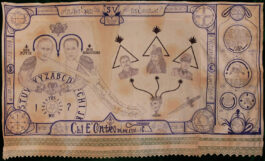
Speaker
Please join the conversation with curator Alexandra Tryanova on art histories from the Ukrainian South. Alexandra draws a speculative map of the region departing from artistic practices of different historical periods tied with the locality attempting to mark a unique northern Black Sea identity and matters that formed it. The conversation will explore horizontal practices and community building, psychogeography, escapism, attitude to the body, music, and politics bridging Ukrainian South and Mediterranean culture.
Related Texts
© 2024 Alexandra Tryanova